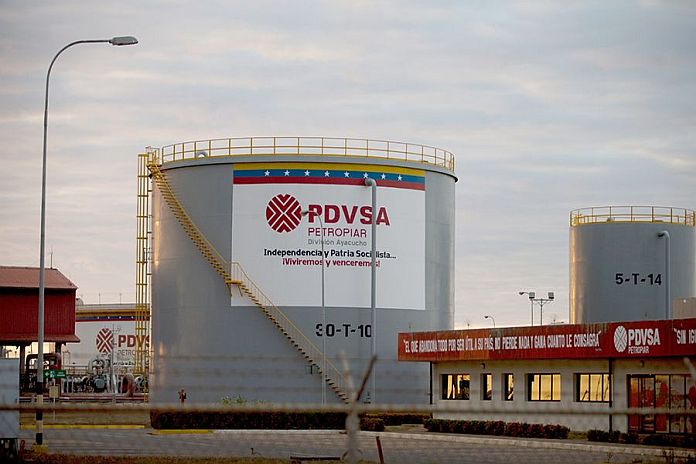CARACAS, Venezuela, (MercoPress) – Venezuela has resumed direct shipments of oil to China after US sanctions sent the trade underground for more than a year, according to Refinitiv Eikon vessel-tracking data and internal documents from state company Petroleos de Venezuela (PDVSA).
Chinese state companies China National Petroleum Corp (CNPC) and PetroChina – long among PDVSA’s top customers – stopped loading crude and fuel at Venezuelan ports in August 2019 after Washington extended its sanctions on PDVSA to include any companies trading with the Venezuelan state firm.
The imposition of the sanctions was part of a push by the Trump administration to oust Venezuelan president Nicolas Maduro, but they failed to completely halt the Venezuelan nation’s oil exports or to loosen Maduro’s grip on power.
PDVSA’s customers instead boosted shipments to Malaysia, where transfers of cargoes between vessels at sea have allowed most of Venezuela’s crude to continue flowing to China after changing hands and using trade intermediaries.
A US Treasury Department spokesperson said on Wednesday that “those engaged in activity in the Venezuelan oil sector risk exposure to sanctions.”
The first tanker to resume transport of Venezuelan crude directly to China was the Kyoto, identified by shipping monitoring service TankerTrackers.com while loading 1.8 million barrels of heavy crude at Venezuela’s Jose port in late August.
At least one other tanker, the Warrior King, is discharging Venezuelan crude at China’s Bayuquan port, while two PetroChina-owned vessels loaded oil in Venezuela this month, according to PDVSA’s loading schedules and shipping documents, and Refinitiv Eikon data.
The Kyoto, chartered by a company called Wanneng Munay according to an internal PDVSA document, discharged at China’s Dalian oil terminal in early November after covering a large portion of its route to Asia in a so-called “dark voyage,” with its location transponder offline, Refinitiv Eikon data showed.
Wanneng Munay is among a group of more than a dozen Russian-registered companies with no known prior oil trading experience that have emerged as PDVSA customers in recent months.
The emergence of these firms has allowed PDVSA to continue shipping oil to Asian destinations in recent months despite withdrawals by established customers like India’s Reliance Industries and Thailand’s Tipco after the US Treasury ended their exemptions to sanctions.
The direct shipments come ahead of January’s transition of power in the United States from Republican president Donald Trump to Democratic President-elect Joe Biden, whose advisers have said he would retain sanctions but shift the focus of US strategy.
Maduro’s Socialist government held a meeting with a delegation of Chinese officials and businessmen this month to tout a new law to promote investment despite what Caracas has called a “blockade” by Washington. The law allows the government to sign new oil deals confidentially.
Maduro said during the meeting he would send a letter to China’s President Xi Jinping encouraging more robust commercial relations between the two countries.
“We have to move forward with investments, with wealth creation, with new partnerships. The anti-blockade law allows all that. Let’s do it in this new phase,” Maduro said.





